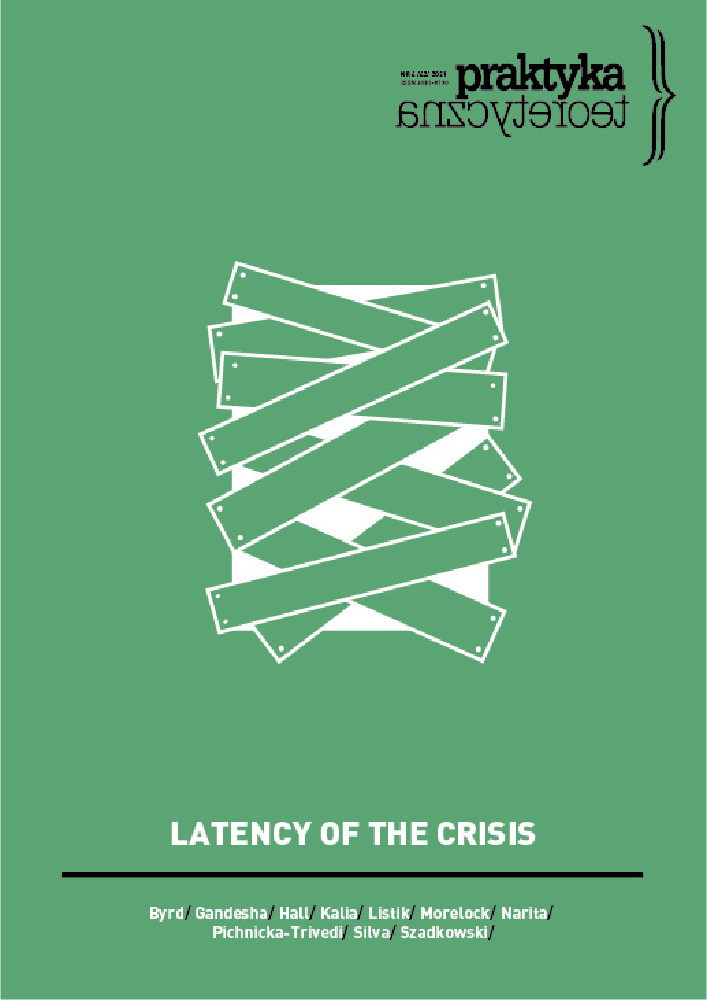Abstract
The recent upsurge of European nationalism is partially an attempt to address the ongoing identity crisis that began with the Bourgeois revolution, which expressed itself through positivistic scientism and aggressive secularization, and culminated in the post-World War II “liberal consensus”: representative democracy and free-market capitalism as the “end of history.” Due to the needs of capitalism after World War II, coupled with the liberalization and Americanization of European societies, there has been a growing presence of “non-identical” elements within Europe, which itself is reexamining the very geography of what it means to be European. In this essay, I explore the historical context of the current identity struggles that are facing Europeans. From a Critical Theory perspective, I challenge the idea that Christianity or a Christian age can be resurrected by ultra-nationalists in their attempt to combat the cosmopolitanism of Western modernity. Moreover, I demonstrate how such attempts to return to an idealized Christian identity are rooted in a false possibility: Peripeteic Dialectics, or “dialectics in reverse.”
References
Adorno, Theodor W. 1999. Negative Dialectics. Translated by E.B. Ashton. New York: Continuum.
Adorno, Theodor W. 2003. The Jargon of Authenticity. Translated by Knut Tarnowski and Frederic Will. New York: Routledge.
Adorno, Theodor W. 2005a. Critical Models: Interventions and Catchwords. Translated by Henry W. Pickford. New York: Columbia University Press.
Adorno, Theodor W. 2005b. Minima Moralia: Reflections on a Damaged Life. Translated by E.F.N. Jephcott. New York: Verso.
Andersen, Joakim. 2018. Rising from the Ruins: The Right of the 21st Century. Translated by Gustav Hörngren. London: Arktos Media Ltd.
Bauman, Zygmunt. 2016. Strangers at Our Door. Malden: Polity Press.
Benjamin, Walter. 2007. Illuminations: Essays and Reflections, edited by Hannah Arendt. Translated by Harry Zohn. New York: Schocken Books.
Benoist, Alain de. 2018. On Being Pagan. Translated by Arcana Europa Media. North Augusta: Arcana Europa Media.
Byrd, Dustin J. 2020. The Frankfurt School and the Dialectics of Religion: Translating Critical Faith into Critical Theory. Kalamazoo: Ekpyrosis Press.
Camus, Renaud. 2018. You Will not Replace Us! Plieux: Chez l’auteur.
Die Welt, “Four EU states refuse migrant quotas amid ‘biggest challenge’ in Union’s History.” September 11, 2015. https://www.dw.com/en/four-eu-states-refuse-migrant-quotas-amid-biggest-challenge-in-unions-history/a-18708760.
Dugin, Alexander. 2012. The Fourth Political Theory, edited by John B. Morgan. Translated by Mark Sleboda and Michael Millerman. London: Arktos Media Ltd.
Froese, Paul. 2008. The Plot to Kill God: Findings from the Soviet Experiment in Secularization. Berkeley: University of California Press.
Griffin, Roger. 1993. The Nature of Fascism. New York: Routledge.
Habermas, Jürgen. 1996. Between Facts and Norms: Contributions to a Discourse Theory of Law and Democracy. Translated by William Rehg. Cambridge: MIT Press.
Habermas, Jürgen. 1998. “The European Nation-State: On the Past and Future of Sovereignty and Citizenship.” In The Inclusion of the Other: Studies in Political Theory, edited by Ciaran Cronin and Pablo De Greiff. Cambridge: MIT Press.
Habermas, Jürgen, Jacques Derrida, and Giovanni Borradori. 2003. Philosophy in a Time of Terror: Dialogues with Jürgen Habermas and Jacques Derrida. Chicago: University of Chicago Press.
Habermas, Jürgen. 2009. Europe: The Faltering Project. Translated by Ciaran Cronin. Malden: Polity Press.
Horkheimer, Max. 1993. “On the Problem of Truth.” In Between Philosophy and Social Science: Selected Early Writings. Translated by G. Frederick Hunter et al. Cambridge: MIT Press.
Horkheimer, Max, and Theodor W. Adorno. 2002. Dialectic of Enlightenment: Philosophical Fragments, edited by Gunzelin Schmid Noerr. Translated by Edmund Jephcott. Stanford: Stanford University Press.
Langella, Julian. 2020. Identitarian and Catholic: From Protest to Reconquest. Translated by Jason Rogers. London: Arktos Media Ltd.
Marx, Karl. 1978. “Contributions to the Critique of Hegel’s Philosophy of Right.” In The Marx-Engels Reader, edited by Robert C. Tucker. New York: W.W. Norton.
Nietzsche, Friedrich. 2008. The Gay Science. Translated by Thomas Common. New York: Barnes & Noble.
Reno, Russell R. 2019. Return of the Strong Gods: Nationalism, Populism, and the Future of the West. Washington, D.C.: Regnery Publishing.
Rockmore, Tom. 2017. “Heidegger after Trawny: Philosophy or Worldview.” In Heidegger’s Black Notebooks: Responses to Anti-Semitism, edited by Andrew J. Mitchell and Peter Trawny. New York: Columbia University Press.
Siebert, Rudolf J. 2020. “End or Continuation of World History: The European, Slavic, and American World – A New Paradigm.” In The Rest Write Back: Discourse and Decolonization, edited by Esmaeil Zeiny. Chicago: Haymarket Books.
Speer, Albert. 1970. Inside the Third Reich: Memoirs. Translated by Richard and Clara Winston. New York: The MacMillan Company.
Vogel, Hans. 2021. How Europe Became America. London: Arktos Media Ltd.
License
“Theoretical Practice” seeks to put into practice the idea of open access to knowledge and broadening the domain of the commons. It serves the development of science, thinking and critical reflection. The journal is published in open-access mode under the CC-BY-NC-SA 4.0 license (detail available here: http://creativecommons.org/licenses/by-nc-sa/4.0/). Articles published in the journal may be freely distributed, stored, printed and utilized for academic and teaching purposes without restrictions.
They should not be, however, used for any commercial purposes or be reconstructed into derivative creations. Access to the journal may not be limited or offered for a fee by any third party.
Prospective authors are obliged to fill in, sign and send back the publishing contract compliant with the CC licencing. [PL.pdf, PL.doc, EN.pdf,EN.doc].
According to this contract, authors grant the journal a non-exclusive right to publish their work under the creative commons license (CC-BY-NC-SA 4.0) without any financial obligation on both sides of the contract.
Before submission authors should make sure that derivative materials they use are not protected by copyright preventing their non-commercial publication. Authors are responsible for any respective copyright violations.
